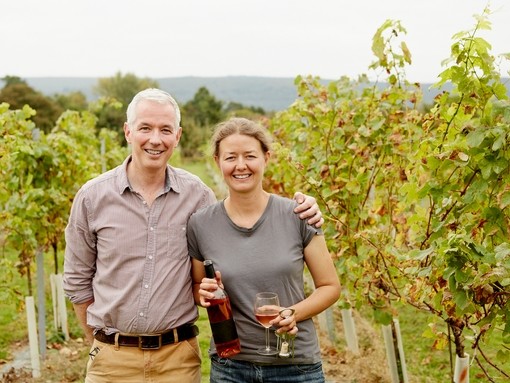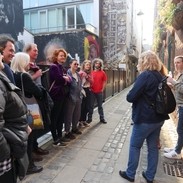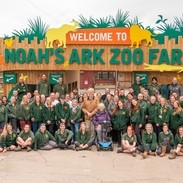Understanding the international travel trade
The Cavern, Liverpool/Craig Easton

Introduction
Building strong relationships with the travel trade can facilitate many valuable opportunities – such as gaining increased visibility, accessing new markets, maximising your marketing budget and broadening your customer base.
While many consumers organise and book their trips directly, the travel trade remains highly effective in reaching larger numbers of potential clients in multiple markets via alternative channels and opportunities. Around one-in-three inbound travellers book their trip to Britain as a package, with long-haul travellers particularly likely to book this way, using intermediaries. Packages are in fact mostly booked through travel agents and tour operators; travel agents are most commonly valued by travellers as they provide expert advice and customer service if problems arise.
For more information, see our Motivations, influences, decisions and sustainability (MIDAS) research (PDF, 7.26 MB).
Connecting your business with key buyers
The travel trade includes all intermediaries such as tour operators, wholesalers, Destination Management Companies (DMCs), travel agents and online retailers – all of which play a vital role in attracting visitors to Britain.
Intermediaries serve as a route to both domestic and international markets. They sell packages that include all aspects of land arrangements (accommodation, transportation, attractions and experiences) to a wide client base, either business-to-business or directly to consumers.
Some intermediaries are based in the UK and provide an easy route to tap into an international audience as they have consolidated relationships with international buyers. Others are also or uniquely based overseas, within the market that they sell to. VisitBritain plays a key role in building relationships with internationally based buyers, and offers multiple opportunities of engagement with them – please see our working with us page. To learn more about this sector of the industry, please see our guide to the structure of the travel trade.
Working with the travel trade can help you to reach new strains of revenue, both from domestic and international markets. To achieve this, strong industry connections are vital; our overseas offices are designed to build and develop relationships with influential operators and agents in-market.
Through our calendar of global events and promotional activity, we ensure that Britain is featured in the travel trade’s programmes and is visible in-market, and that British businesses have a highly effective route to market.
Our work with the travel trade also includes providing sales support, online support, travel advice and itineraries, as well as organising educational visits to increase product knowledge and showcase what Britain has to offer.
Access market trends and insights
International market webinars
Our International market webinars explore how the international travel trade is evolving – including market trends, insights from our research specialists, and perspectives from key players on how they expect to work with UK products and businesses. Join the live webinars to ask questions that might help shape your future strategies, or watch archive recordings to discover effective best-practice, advice and opportunities.
Our International market webinars explore how the international travel trade is evolving – including market trends, insights from our research specialists, and perspectives from key players on how they expect to work with UK products and businesses. Join the live webinars to ask questions that might help shape your future strategies, or watch archive recordings to discover effective best-practice, advice and opportunities.
How we connect UK businesses with the travel trade
The structure of the travel trade
Online travel agencies (OTA) arrange and sell transportation, accommodation, attractions, tours and trips on online platforms, offering a self-service approach for fully independent travellers (FIT) to search, compare and book. They are third parties who sell services on behalf of other companies, reaching vast audiences who visit these sites daily.
Travel agents organise personal travel and accommodation for travellers. They provide travel and tourism services on behalf of suppliers including airlines, hotels, cruise lines, railways, and package tour operators.
General Sales Agents (GSA) or Representation Agencies represent clients (such as attractions or destinations) within the travel trade landscape, using their expertise to build business-to-business, press or consumer sales strategies and capacity. They vary in size and speciality, and can work on both domestic and international levels.
Tour operators build a package for the elements that make up a holiday or a tour, often dealing with travel, accommodation, transfers and activities. They may specialise in planning for large groups or events, such as conferences.
Wholesalers develop and market inclusive tours. They generally sell to other elements of the travel trade rather than directly to the public.
Tour guides travel with tourists, to ensure that their trip runs smoothly. They often book hotels, activities and excursions. Many work for tour operators on a freelance basis.
Short break operators offer accommodation packages – usually between one and four nights.
Incoming tour operators and ground handlers manage overseas visitors’ experiences. Their work begins when their clients enter Britain, and ends when they leave. Many belong to the trade body UKinbound.
Destination Management Companies (DMCs) are UK-based organisations that offer crucial expertise and experience to overseas business-to-business partners. They purchase hotels and services from local operators and distribute overseas, as well as offering all aspects of operational support to their partners.
Coach operators range from small driver-owned companies to large operators. They may publish their own brochures of coach holidays.
Conference and incentive organisers manage all aspects of conference organisation on behalf of their clients, and often offer tourism-based incentives for companies looking to encourage and reward high performance.
Tourism Exchange Great Britain (TXGB) is a digital platform that drives sales and boosts productivity. It connects tourism businesses, booking systems and distribution channels in one central marketplace.
Local Visitors Economy Partnerships (LVEPs) work in collaboration locally, regionally and nationally on shared priorities and targets. Their mission is to support and grow the visitor economy through robust destination management, strong stakeholder relationships and clear planning.
Destination Management Organisations (DMOs) are responsible for coordinating tourism in their area. They take various sizes and forms, and work with a wide range of local stakeholders including the tourism business community, local authorities, transport operators and retail associations.
Trade associations offer sector-specific advice, guidance and support to businesses throughout the industry.
Making the most of trade shows and missions
Meet key industry figures
Trade shows, missions and other events are valuable opportunities to meet key industry buyers and media from across the globe. Learn how to maximise your results, build strong relationships and make each event a success with our free guide and checklist.
Trade shows, missions and other events are valuable opportunities to meet key industry buyers and media from across the globe. Learn how to maximise your results, build strong relationships and make each event a success with our free guide and checklist.












